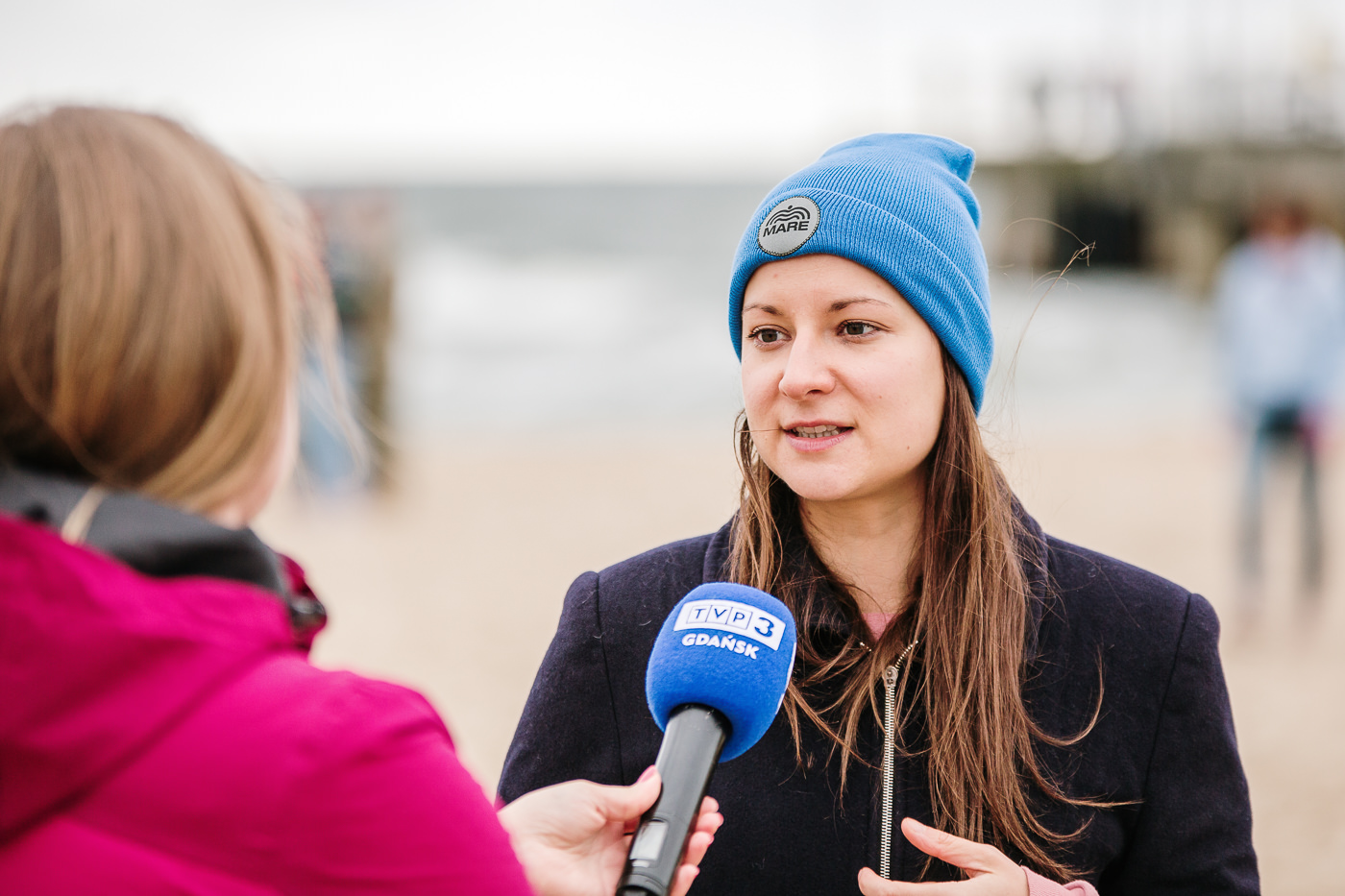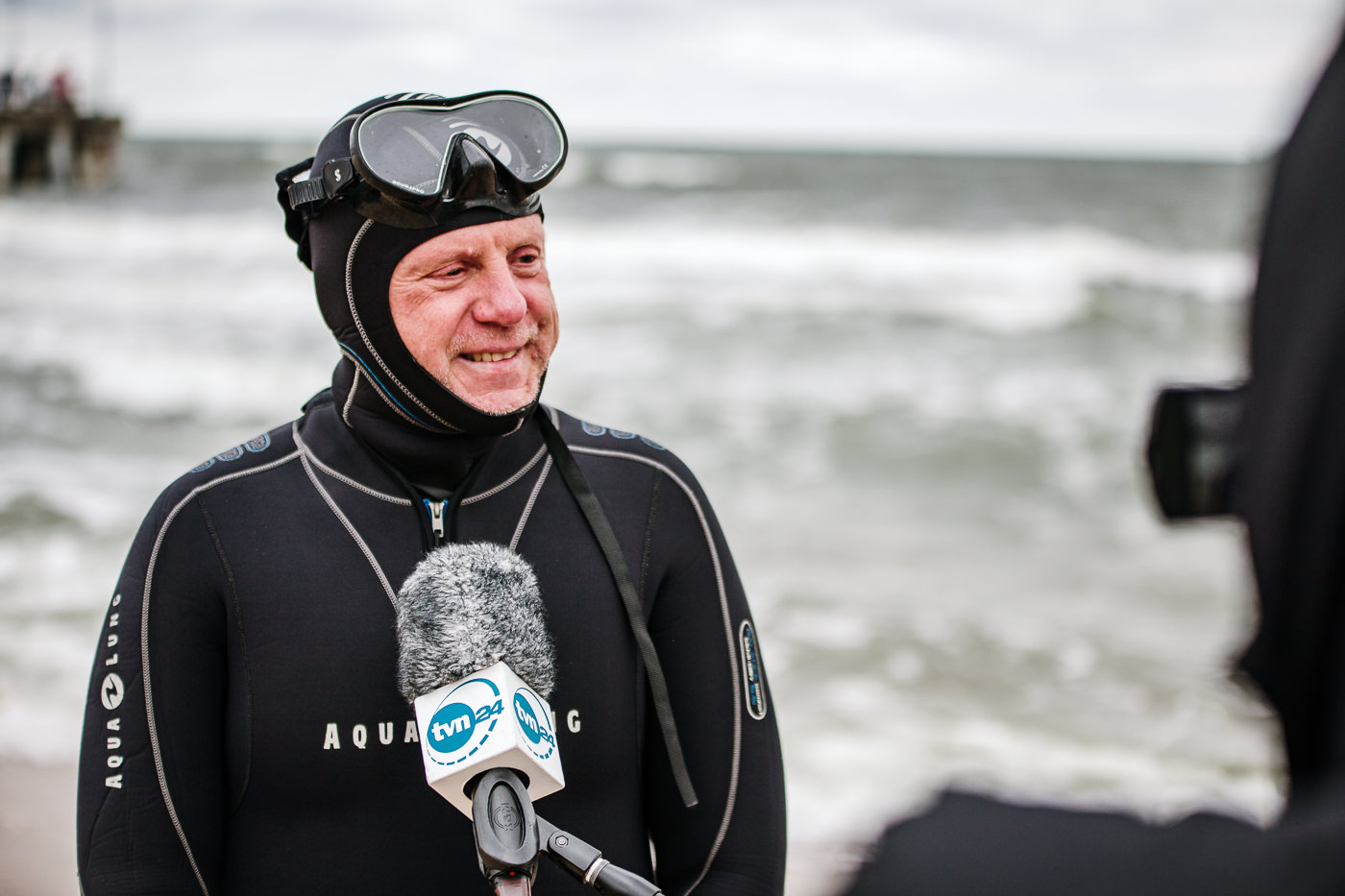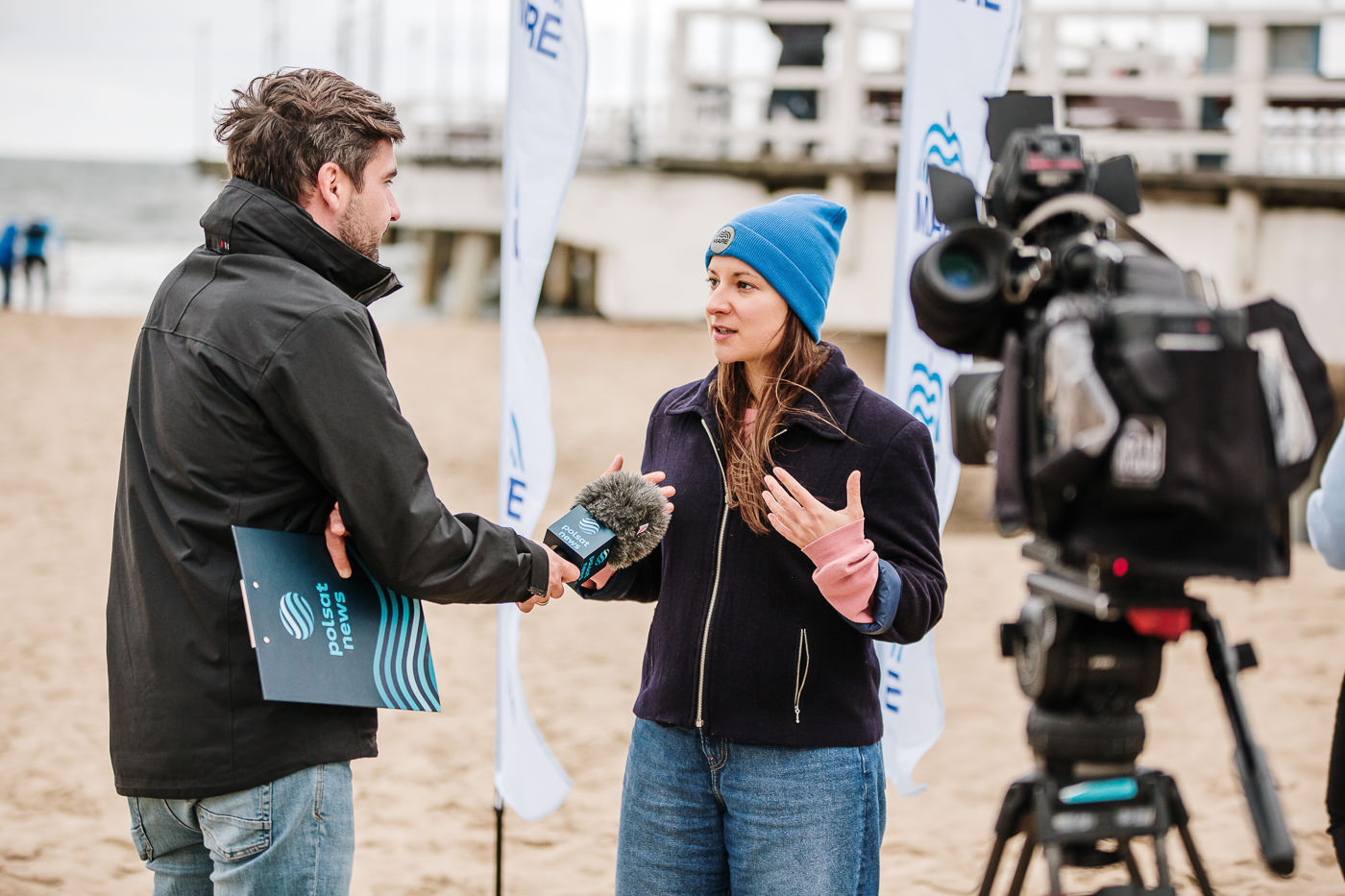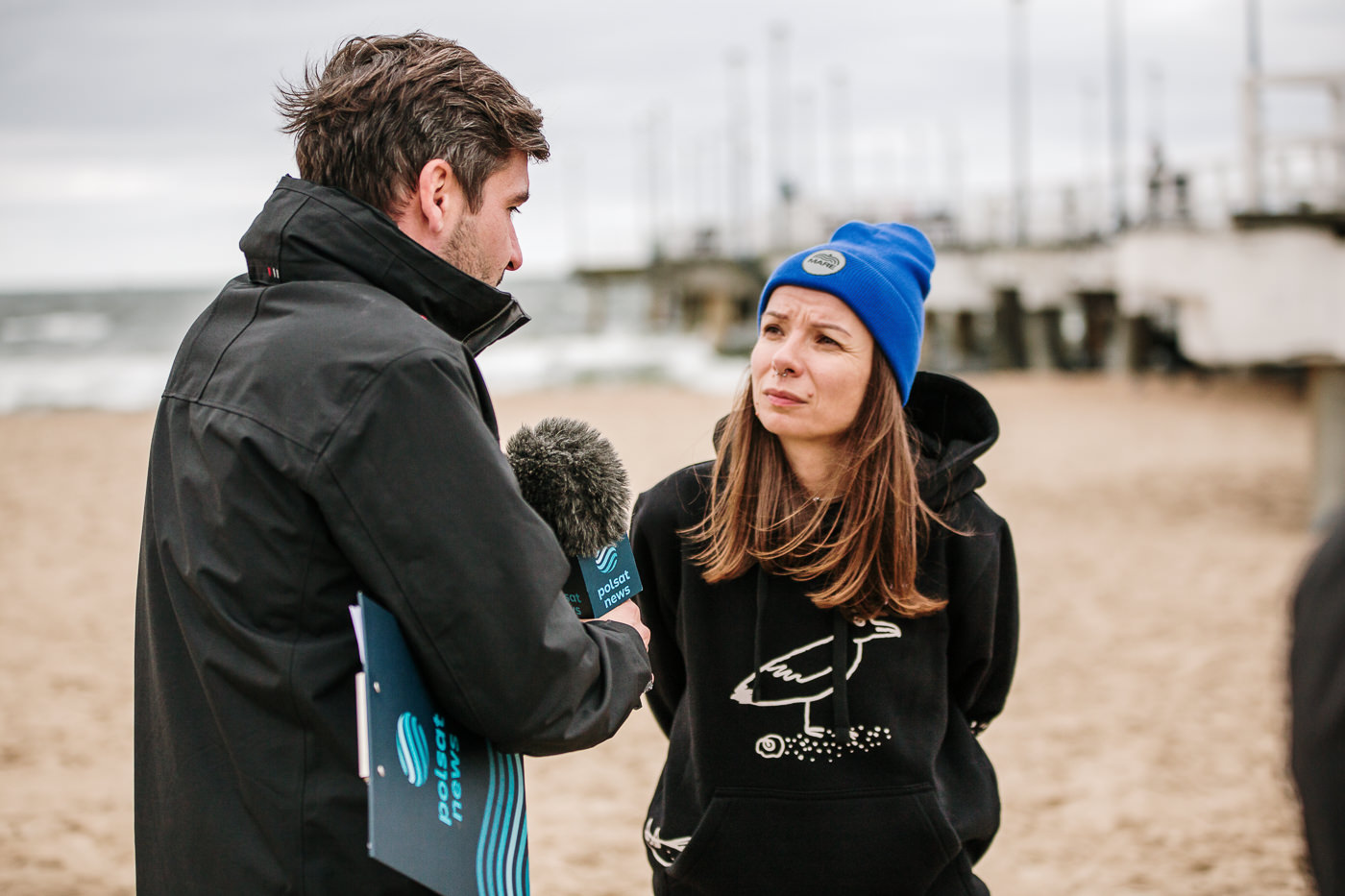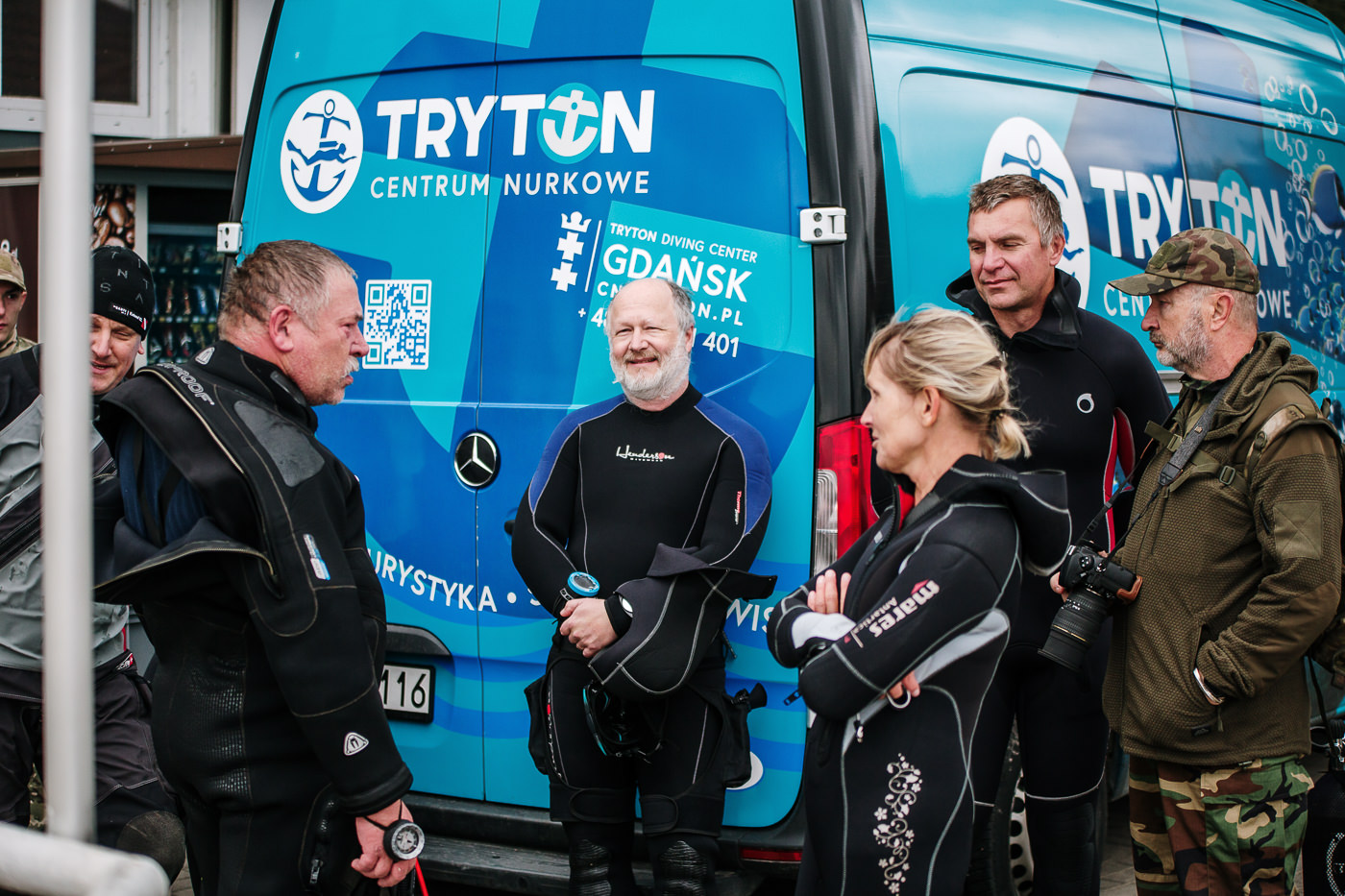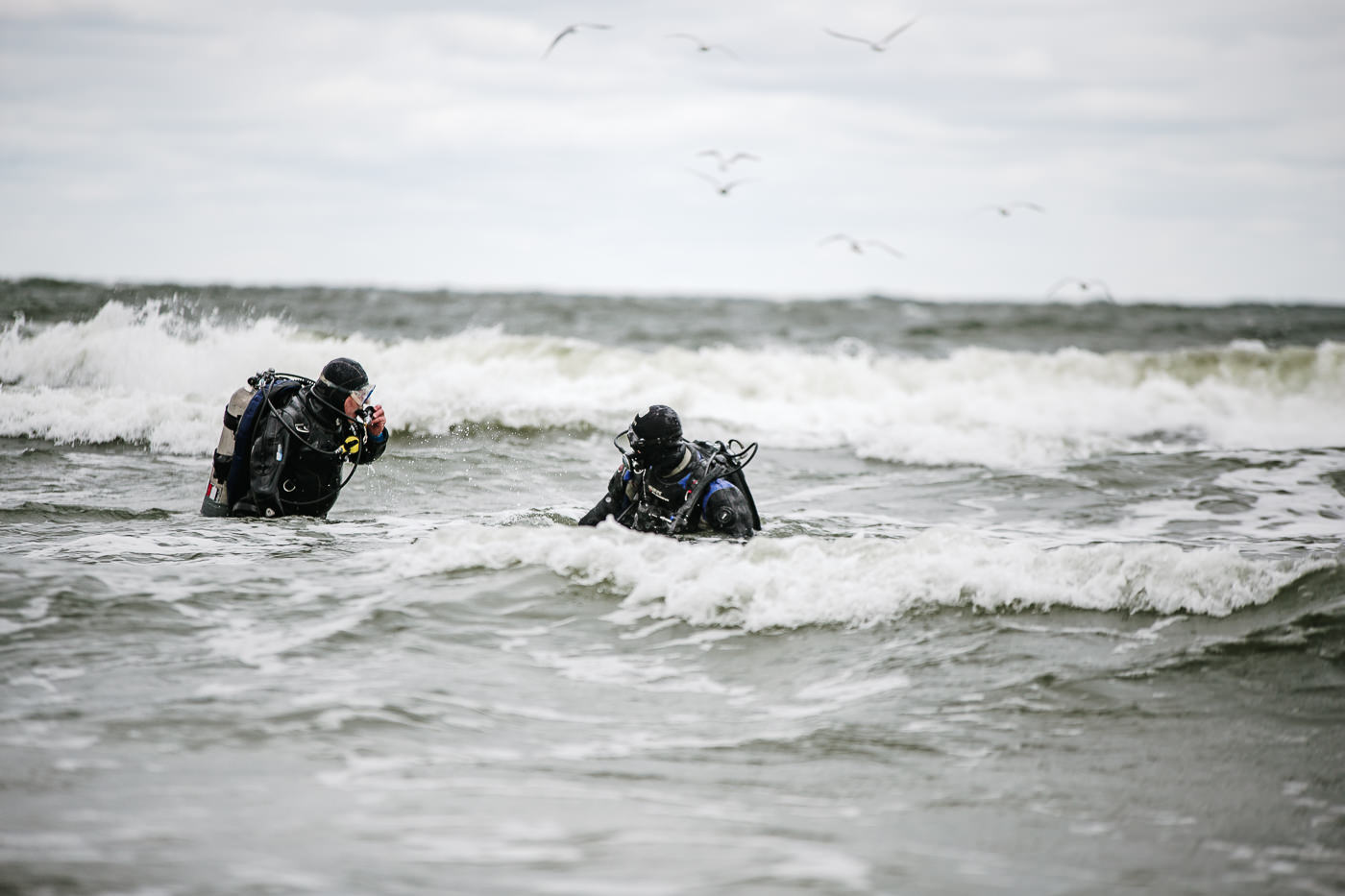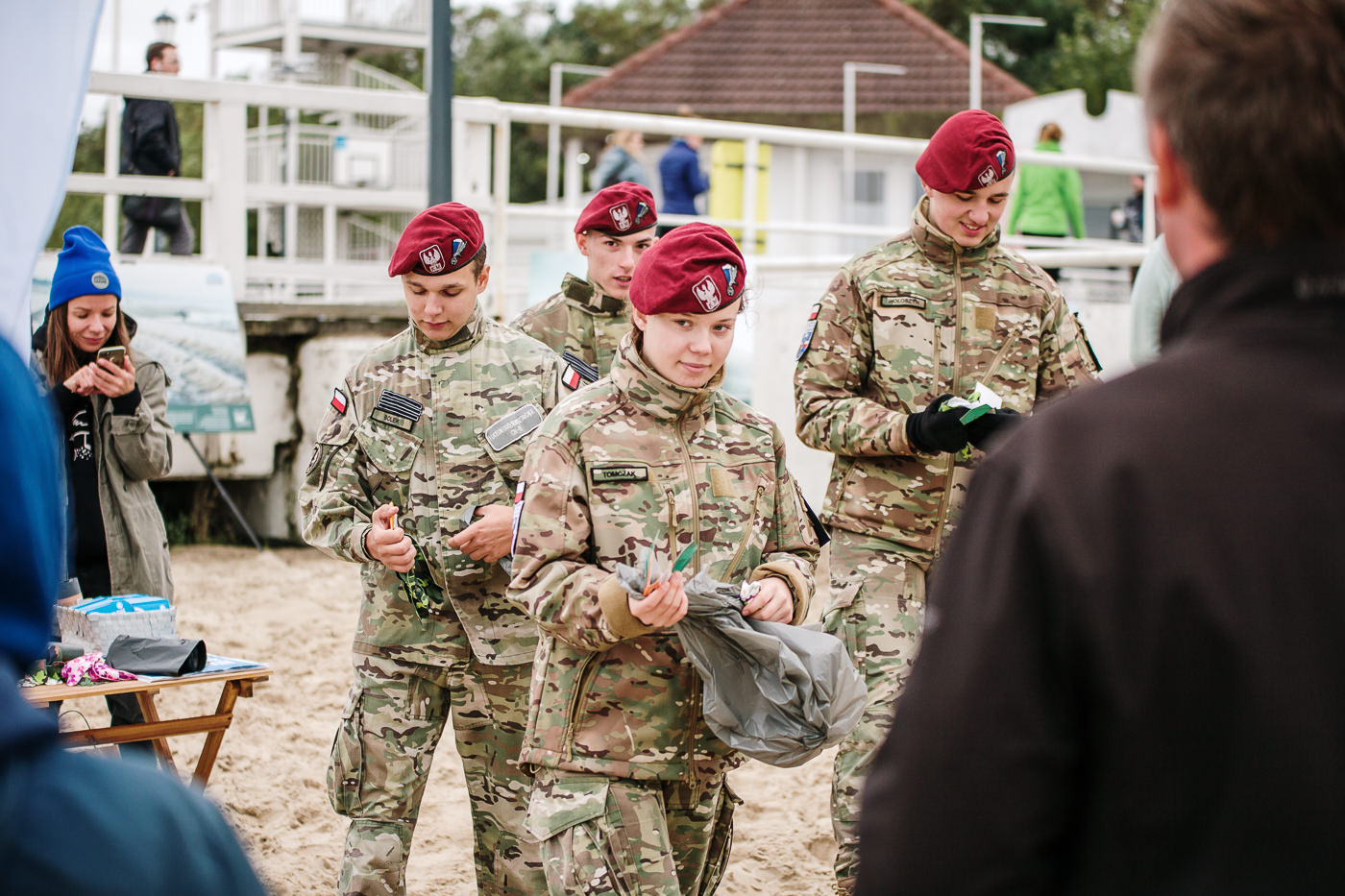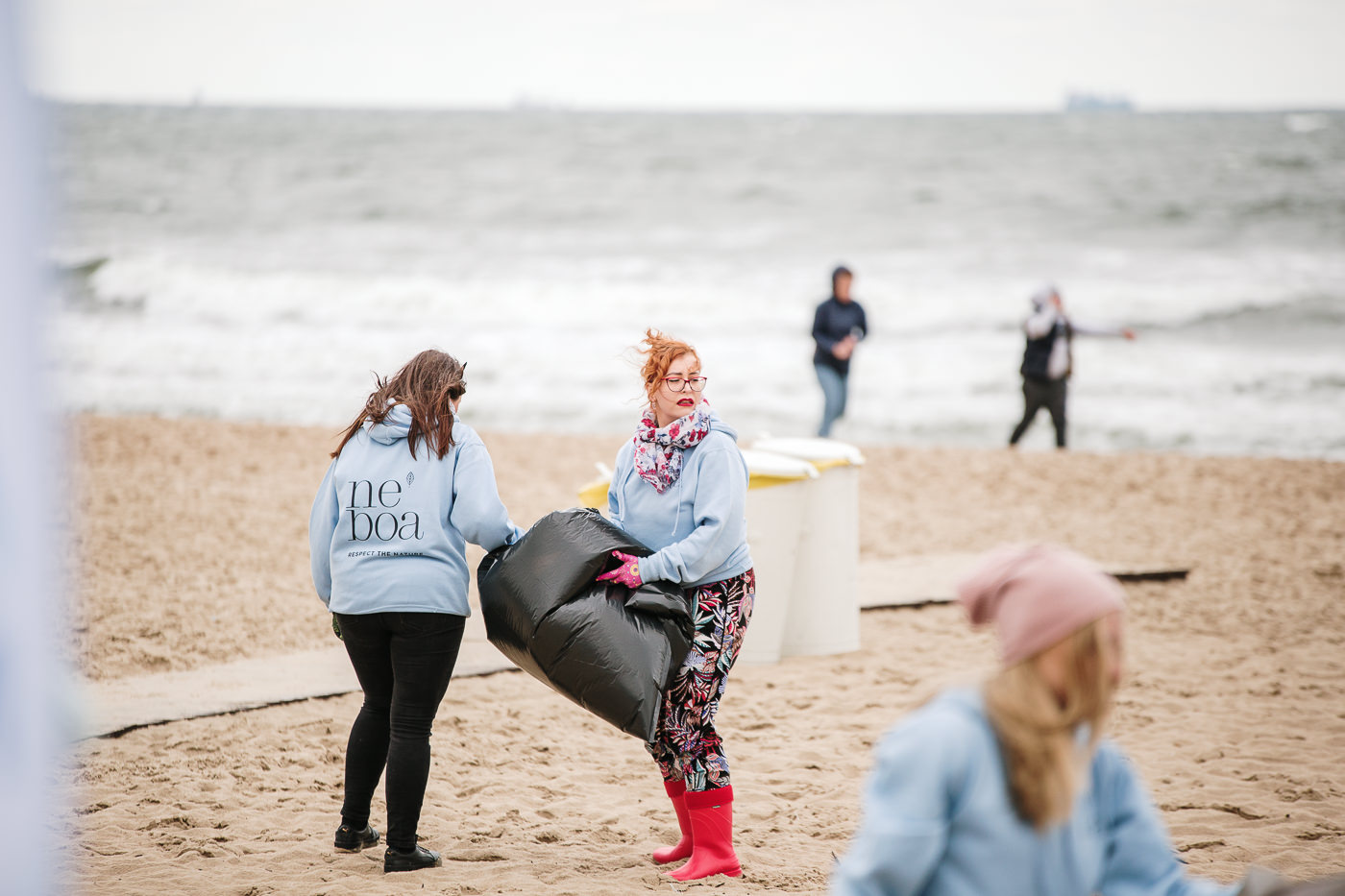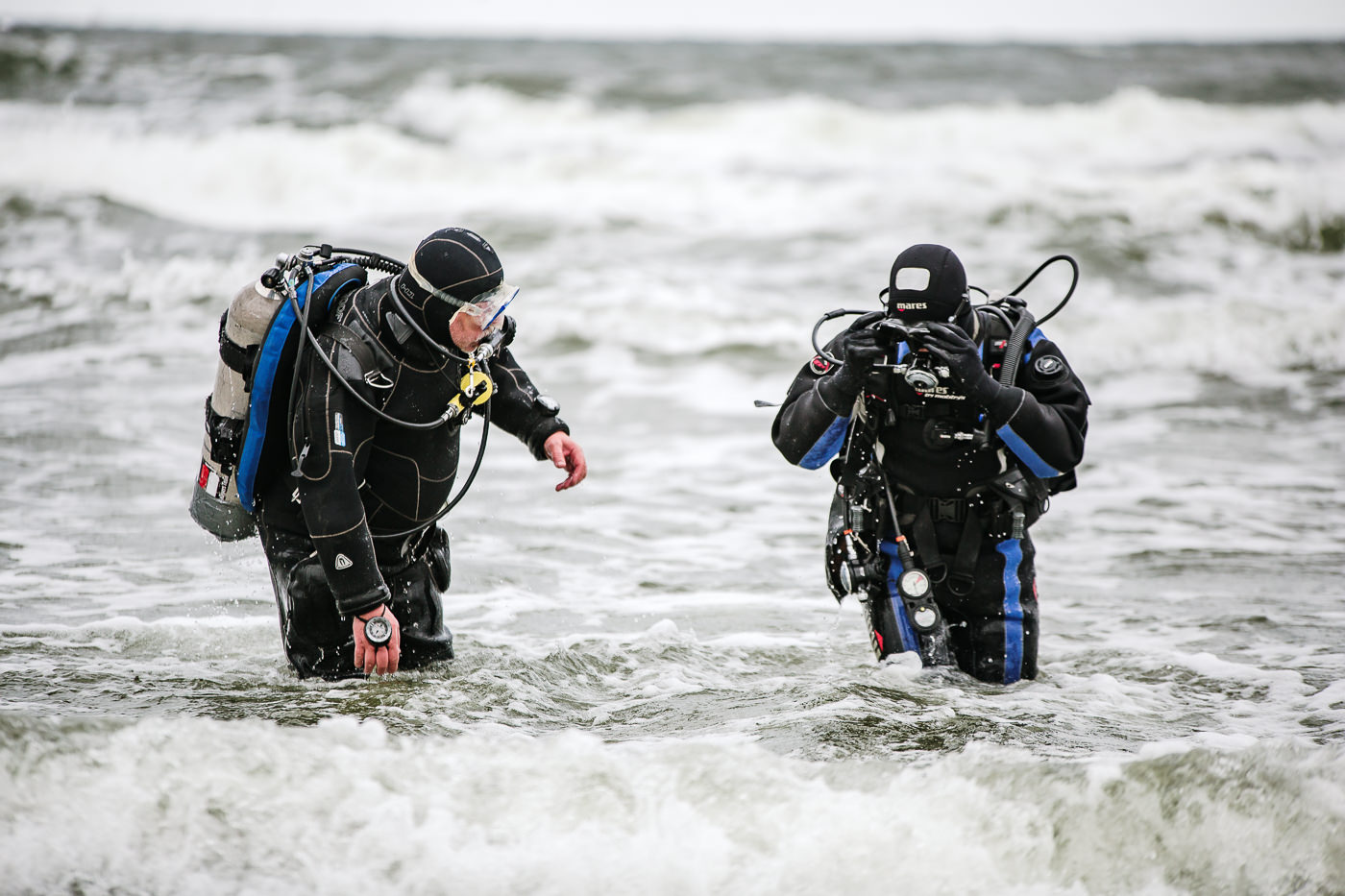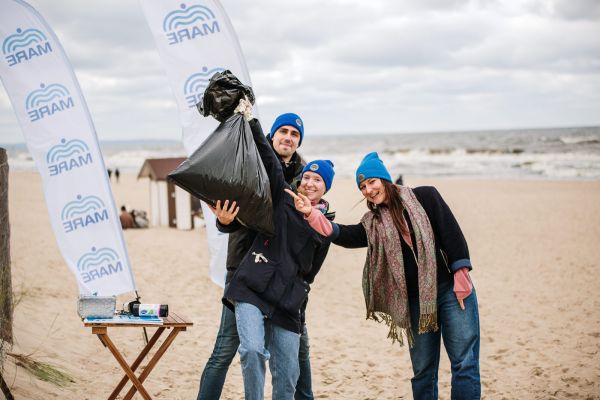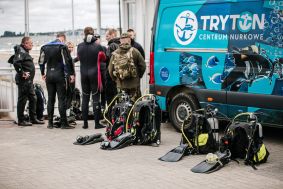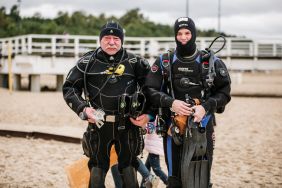WE CLEAN THE BALTIC 2021
Another edition of the WE CLEAN THE BALTIC event in the framework of the WORLD CLEAN UP DAY is over! Thank you for your support and presence. The weather was cold but the atmosphere was very warm. This year we were active in two places: on the beach in Gdańsk Brzeźno and on Sobieszewo Island. We are very happy that despite the wind and cold, we met so many Baltic lovers.
According to the European Commission, single-use plastics account or 50% of all waste in the seas and oceans. Derelict fishing gears, the so-called ghost nets account for 27% of plastic litter. They retain part of their fishing capacity and continue to fish uncontrolled. According to HELCOM, plastic is among the most abundant litter on the Baltic coast, regardless the location. We know that plastic that had entered the marine environment has very little chance to leave it unless it is removed by someone. Plastics do not decompose and do not disappear, but only break into small particles, called microplastics, a then nanoplastics.
Photos by PiotrSzafran
What is the threat imposed by plastics present in the marine environment? Starting with larger fractions, the impact of which can be easily visible, the scale of it is huge. Fishing lines, nets and rings cause entanglement of animals and limit their mobility. Often, larger animals such as sea mammals, birds or turtles confuse plastic with food. They are unable to digest and it remains in their stomachs, eventually leading to starvation. Microplastics are the greatest threat and they are almost impossible to remove from the environment. Like larger particles, smaller animals often swallow them as food, these microparticles become part of the food chain. In addition, dangerous chemical substances are released when plastic breaks into smaller particles. Microorganisms such as bacteria develop in the microparticles. They also cumulate toxic compounds on their surface.
The best way to prevent pollution in the marine environment is to stop using single use plastic items and to make the right choice of products that can be recycled. Prevention of litter is the obvious choice but you should also remember that it costs you nothing to pick up the garbage. We try to communicate this during the WORLD CLEAN UP DAY.
The weather prevented us from diving and removing litter from water, but we address our big thanks to the divers from the TRYTON Diving Centre for being in full readiness – we admire your enthusiasm and hope to be able to carry out the action in the future. But thanks to the participants of the event, we were able to clean the beach. Cigarette butts dominated the litter. We collected cans, bottles, plastic packaging and many other remnants of the summer season.
---
We thank all those engaged in communicating the event, including the media. We are very happy that the protection of the marine environment is an issue of common concern. An event carried out once a year does not bring immediate changes, but we have long term goals. We want to raise the awareness about litter and point to the need to care for the environment on a daily basis. We believe that it is worth to engage in such events and to educate people. We ask you to continue the action #PickUpGarbagefortheBaltic every day and everywhere.
SEE YOU NEXT YEAR, during the next edition of the WORLD CLEAN UP DAY!


